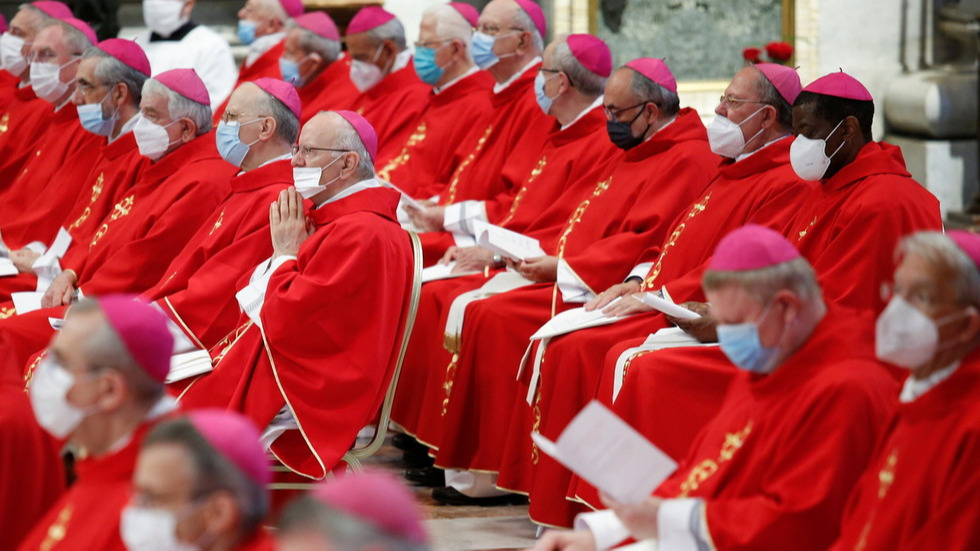
Members of the clergy attend the Mass of Saint Peter and Paul celebrated by Pope Francis at the Vatican, June 29, 2021. © REUTERS/Remo Casilli
Vatican City, July 3 (RHC)-- The official bioethics academy of the Catholic Church has come forward alongside a host of global medical associations to demand an end to the “myths and disinformation” interfering with the fight against COVID-19.
The Pontifical Council of Life (VPCL) and several international physicians’ groups spoke with reporters at Vatican City in what was described as an “all-out effort” to set straight the disinformation surrounding the vaccine’s place in religious doctrine, insisting the pharmaceutical mixture was not only safe and effective but also ethical under the Catholic faith.
While acknowledging that some reluctance to take the jab in “disadvantaged communities” was linked to previous “breaches of trust in medical research” and overall “suspicion” of pharma firms, Friday’s joint statement said a “more pernicious form” of vaccine hesitancy was fueled by “unfounded and misleading claims and myths” and amplified on social media.
"Considered one of the greatest achievements of modern medicine, vaccines play a vital role in the prevention of infectious diseases," they said. The groups noted the problem becomes even more complex given the vaccine skepticism within many religious groups, and even the medical community, calling for a united front against disinformation among spiritual leaders and healthcare professionals.
All relevant stakeholders must exhaust all efforts to confront vaccine hesitancy by sending a clear message about the safety and necessity of vaccines and counteracting vaccine myths and disinformation
The statement followed a day-long online seminar sponsored by the VPCL, along with the World Medical Association of France and the German Medical Association. The groups also reiterated the Vatican’s message that all nations should have the same access to vaccines, arguing that rich and poor countries should be able to obtain the same level of care. Pointing to what they called “vaccine nationalism,” they condemned wealthier countries for snapping up as many doses as possible while leaving poorer countries “at a disadvantage” due to a lack of funds or insufficient production capacity.
However, some attending the virtual event complained that groups concerned with vaccine safety, including conservative and Catholic organizations, were not invited, noting that there were no skeptics among the speakers. The organizers shut down any such concerns, however, “strongly rejecting” any doubt in the vaccines’ safety, the Associated Press reported.
The head of international affairs for the German Medical Association, Dr. Ramin Parsa-Parsi, spoke disparagingly of skeptics, implying their concerns are at odds with the science. “We are physicians. We represent physicians. And we are bound to science and to evidence-based medicine,” he said.

